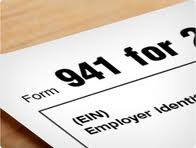Generally, being “responsible” is good but not in the tax world when it comes to unpaid payroll taxes.
If you’re labeled a “responsible person” it means the IRS can pursue you for payroll taxes, as happens to thousands of business owners every year. Plus, it happens to non-owner officers and check signers even if they don’t benefit from diverted money. If you have check-signing authority and could have paid the IRS, you may be stuck even if you had no idea the IRS wasn’t being paid.
The IRS can assess a Trust Fund Recovery Assessment, also known as a 100-percent penalty, against every “responsible person.” See Section 6672(a). You can be liable even if have no knowledge the IRS is not being paid. What Is The Trust Fund Recovery Penalty? Factual nuances matter, so one person may get stuck while another gets off scot-free.
That’s what happened in Johnson v. U.S., where the IRS went after two employees for a casino’s payroll taxes. The casino withheld taxes from payroll but failed to deposit it with the IRS, meanwhile paying other creditors. Brian Toms was the secretary/treasurer responsible for making tax deposits and electronic transfers for payroll taxes.
Brian was aware the casino’s taxes were not being paid yet money was going to vendors and employees. Brian even discussed the situation with the IRS. He could hire and fire employees, was a member of the board of the parent company, and many employees reported to him.
Bonnie Johnson was the CFO but was not a member of the board, nor an officer or shareholder. She was authorized to pay vendors in the morning before Brian arrived. Otherwise, she paid vendors and creditors only when Brian instructed. Bonnie could not authorize payment of the casino’s taxes and could not sign contracts, but she could sign tax returns.
When the IRS pursued them for payroll tax penalties they both contended they should not be liable. The court ruled Brian was responsible but not Bonnie. After all, Brian exercised control over paying bills, had full check-signing authority, prepared and signed tax returns, made electronic transfers, and had the authority to hire and fire employees.
Bonnie, though, was ruled not responsible. True, she had check-signing authority and even prepared and signed tax returns. However, she did not have control of the payroll, could not authorize federal tax deposits, and did not have authority to sign contracts.
Most importantly, Bonnie didn’t have significant control over the casino’s finances. Her only exercise of independent financial control was paying vendors in the morning before Brian arrived. Otherwise, she just awaited instructions which vendors and creditors to pay. The court specifically found that she did not have the authority to pay the IRS without permission from Brian.
I’m Not Responsible! Bonnie was lucky, but trying to show you weren’t responsible can be tough. The IRS position is that every officer is responsible, and that some non-officers with signature authority are too. Some employees resign from their job, or demand regular written assurances from their company that payroll taxes are being sent in. In a tough economy, it’s even more important to be vigilant.

